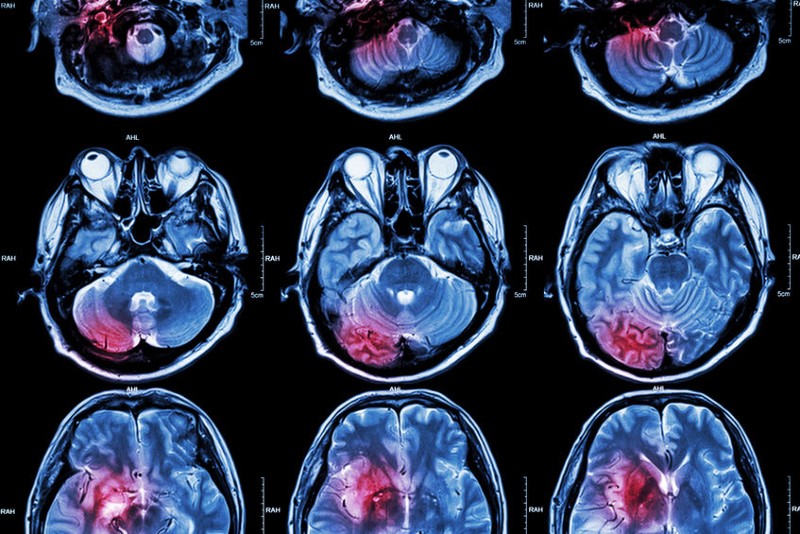
What You Should Know About Head Trauma Hearing Loss
Reviewed by Dr. Porter on March 3, 2021
Traumatic brain injury is a leading cause of disability and death in the United States, with up to three million head injuries occurring yearly, and over one million of those injuries requiring hospitalization. One frequently lasting symptom that is found in many instances of head trauma is hearing loss.
What is a Traumatic Brain Injury?
More commonly known as a head injury, a traumatic brain injury is a brain disruption caused by an outside force. This force could be from a violent blow to the head, or a severe impact to the body. This kind of damage leads to brain dysfunction, with a range of effects such as hearing loss, concussion, confusion, memory loss, headaches, nausea, dizziness, vomiting, numbness, tingling, and convulsions.
While a head injury can come from a sports injury, it can also come from auto collisions, fallps, and accidents. Hearing loss is one of the more impactful and lasting effects of a head injury in many cases.
Hearing Loss from a Head Injury
A traumatic brain injury can lead to auditory loss because the ear is especially vulnerable to blunt force trauma and abnormally loud noises. If a loud blast occurs near the ear, this can rupture the eardrum, causing damage to the ear’s auditory ability.
If the eardrum ruptures from an injury or a blast, the auditory pathway that carries signals may be disrupted, rendering the pathway incapable of transferring important signals from the ear to the brain for interpretation.
When an injury is sustained, the brain will divert much of its attention to basic functioning and survival needs. This diversion makes it difficult for the brain to filter or sensor information after the trauma has occurred. In some cases, the injured person will develop hypersensitivity to sound, also known as hyperacusis. People with this condition will feel overwhelmed by environmental noises from social gatherings like restaurants and shopping centers.
There are two types of auditory loss that you can expect from a blast injury: conductive auditory loss and sensorineural auditory loss. In conductive hearing impairment, sound is not reaching the inner ear and loud noise is muffled. In sensorineural hearing loss, there is an issue with the inner ear or auditory nerve. For some people who are experiencing consistent auditory loss, a combination of both types is possible.

Signs, Symptoms, and Severity of Hearing Loss
After experiencing a traumatic brain injury, be sure to pay attention to your ability to hear. Can you pick up conversations clearly? Can you locate sounds? Is there a ringing or a buzzing sound in your ear, even when the room is quiet? These can be telltale signs of hearing loss. You might also experience sensations of vertigo or imbalance.
This type of hearing loss can occur in one or both ears. While the auditory impairment may go away for many people, the residual damage can be long-term for others. This ringing or buzzing noise, also known as tinnitus, will either subside or go on throughout a person’s life, depending on the severity of the injury.
While experiencing a traumatic brain injury is not always preventable, there are certain precautions you can take to avoid auditory impairment. You could become more aware of hazardous noises that cause damage to the ear. In situations where a hazardous noise could cause damage, it is recommended that you wear protective gear, try to move to a safe distance, or try to reduce the noise when possible. If you are experiencing any of these hearing loss symptoms after a traumatic injury, then it is time to get tested by an auditory health professional.
What to Do if You Can’t Hear After a Head Injury
Injury-related hearing loss needs to be treated as soon as possible. While waiting for medical treatment, it is recommended that you reduce or eliminate any noises around you. Communicate with friends and family members that you are experiencing auditory impairment so that they are aware of your auditory needs. Then be sure to schedule an appointment with a health professional that specializes in auditory injuries, especially from blast injuries.
Contact Harbor Audiology & Hearing Services
Our audiologist team is serving the areas of Sequim, Federal Way, Silverdale, Port Angeles, Tacoma, and Gig Harbor. We offer services in diagnostic testing, tinnitus treatment, hearing aid care, and more. During a visit to Harbor Audiology & Hearing Services, the audiologist will want to know all the signs and symptoms you are experiencing, along with a complete medical history.
You will undergo a diagnostic hearing test and fill out a history questionnaire that explains any auditory loss and communication challenges. Your audiologist will then perform a series of tests that determine any areas of concern. After a diagnosis is made, you can then discuss treatment options with your doctor.
Categorised in: Audiologist






